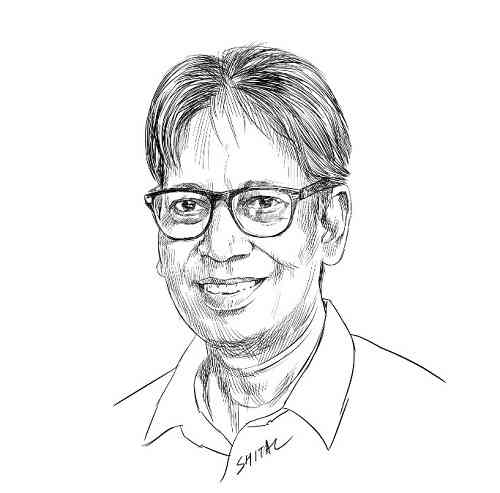The Unseen Impact: COVID-19 and Steroids Transforming the Landscape of Hip Surgeries
Doctors are seeing an increase in instances of Avascular Necrosis (AVN), a disorder that causes the destruction of bone tissue, particularly in the hips, following COVID-19. What's more shocking is that this is happening to a far younger demographic, folks aged 20 to 40, as opposed to people in their forties or fifties. If you have previously been treated with COVID-19 and are now having hip joint pain, early identification may be beneficial. This is a red flag not only for the elderly, but also for the younger demographic.

by Dr. Kumardev Arvind Rajamanya, Head of Department (HOD) & Lead Consultant – Orthopaedics, Aster Whitefield Hospital, Bengaluru
Doctors are seeing an increase in instances of Avascular Necrosis (AVN), a disorder that causes the destruction of bone tissue, particularly in the hips, following COVID-19. What's more shocking is that this is happening to a far younger demographic, folks aged 20 to 40, as opposed to people in their forties or fifties. If you have previously been treated with COVID-19 and are now having hip joint pain, early identification may be beneficial. This is a red flag not only for the elderly, but also for the younger demographic.
What causes this to occur? Steroids were used to treat inflammatory conditions such as arthritis, asthma, some types of cancer, and other illnesses even earlier. Although at that point, the condition's incidence was lower and its rate of advancement was significantly slower, it remained a significant risk factor for the development of AVN. On the other hand, we are seeing that individuals who have COVID-19 and were treated with steroids, even for a brief period of time and at a lesser dosage, are exhibiting a considerably faster joint degradation. This suggests that in addition to the steroid medication, the musculoskeletal damage is also being caused by hypercoagulability and other vascular-related diseases linked to COVID-19. Which patient will experience this is uncertain. Which patient would have this dreadful consequence is highly unpredictable.
What are the warning indicators to be aware of? It is largely hip pain that gets worse when you bear weight and can occasionally even happen when you're at rest. The early stages might not show any symptoms. Early identification enables us to take action to halt the condition's progression and identify it sooner. Multiple stages of AVN progress and may not show up on x-rays in the first grade. The femoral head, or "ball" in the hip joint, has already begun to collapse by stage 2 or 3, at which point the condition can be seen on an x-ray. The sole diagnostic method that aids in identifying the illness in its early stages of pathology is magnetic resonance imaging. Patients who are diagnosed early may benefit from stem cell therapy in conjunction with joint preservation techniques such as decompression surgery to save the hip joint. For those with joint collapse and irreparable injury, such as those in stage 3, a total hip replacement is advised.
Individuals who eventually need hip replacements at an earlier age appeared to have one thing in common: they put off getting treatment for a little too long. Delaying a trip to the doctor is a regular occurrence, regardless of how minor the discomfort was or whether one assumed the ache was solely muscular in nature.
Signs such as minor hip pain or discomfort, difficulty climbing stairs, sitting, or even engaging in your favorite recreational activities should not be disregarded. In case of uncertainty, promptly consult a physician and obtain relevant tests, particularly if there is a history of COVID-19 infection and steroid use.
The health of our bones can be enhanced by taking better care of our joints and bones, giving up smoking, drinking alcohol in moderation, avoiding steroid misuse, exercising frequently, and eating a diet high in calcium, vitamin D, and antioxidants.
The increase in AVN instances following COVID-19 infection and steroid use emphasizes the complex nature of AVN. It's important for everyone, including healthcare providers and the general public, to stay aware and incorporate screening and early detection into standard medical procedures as we navigate the post-COVID healthcare landscape and uncover new aspects of the "long COVID" syndrome. We can decrease the effect of unforeseen health issues by raising awareness.


 City Air News
City Air News 










